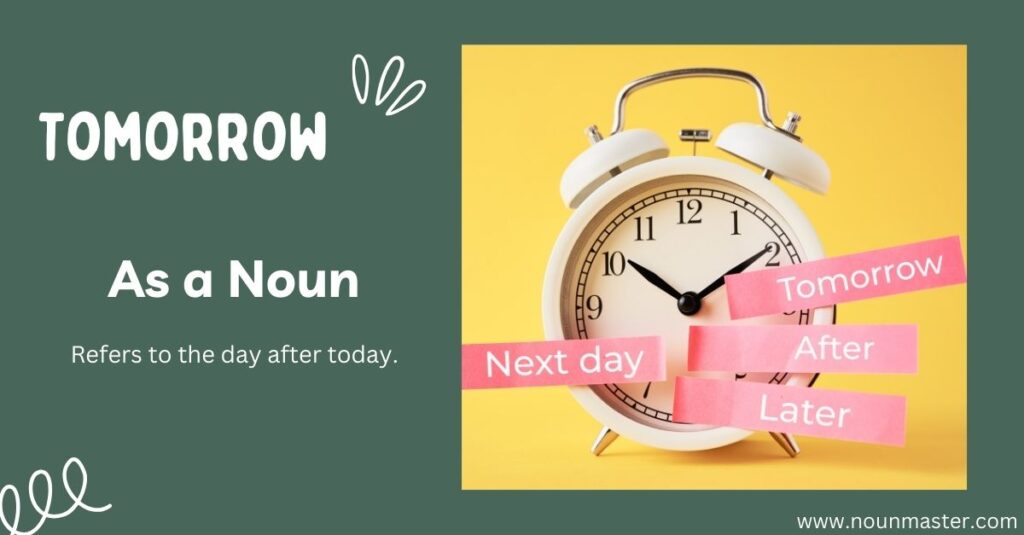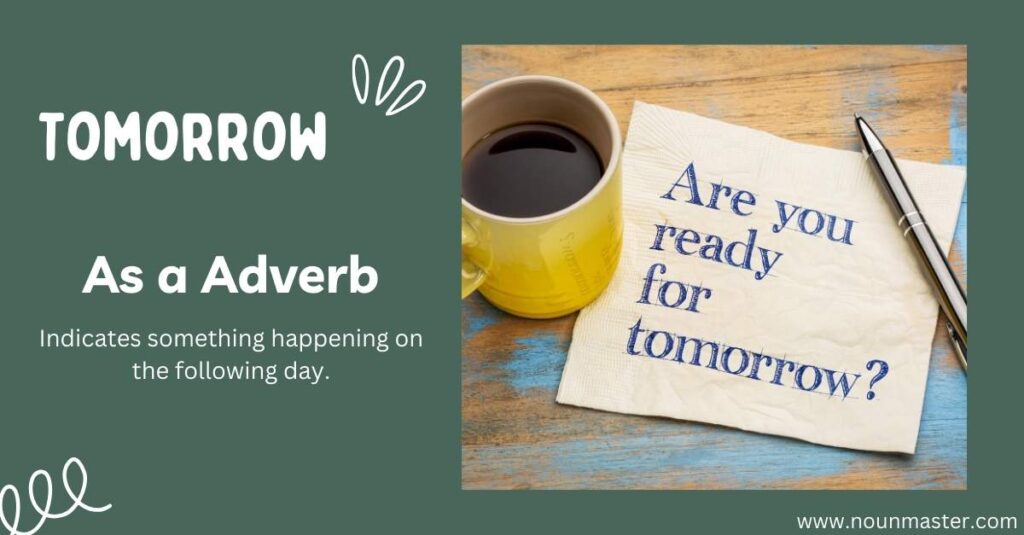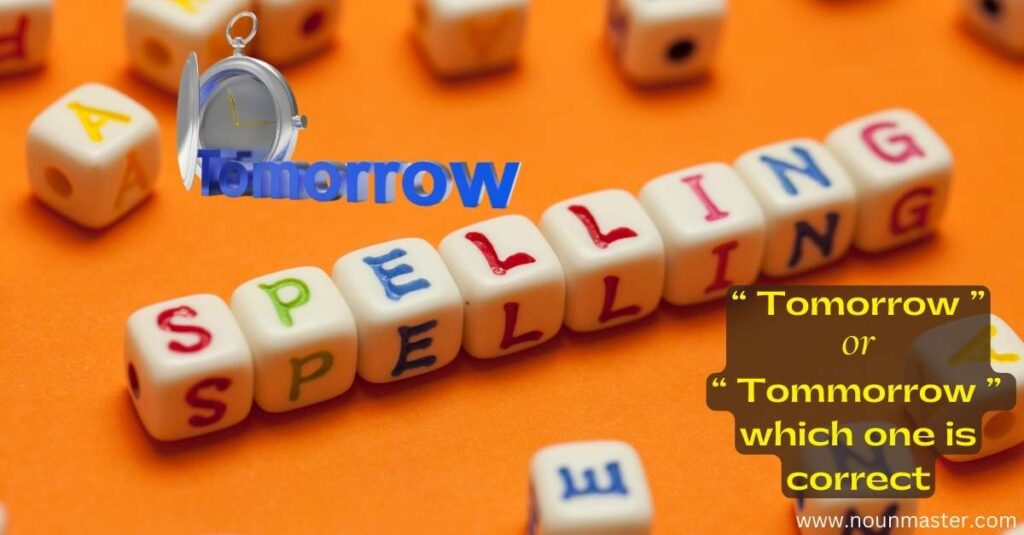Have you ever paused while writing, unsure whether it’s tomorrow or tommorrow? You’re not alone—this is one of the most common spelling mistakes!
The good news is that the correct spelling is simple to remember if you understand the word’s structure and origins.
In this article, we’ll explore the right spelling, explain why people often get it wrong, and provide helpful tips to ensure you never misspell it again.
Quick Comparison
| Spelling | Correct or Incorrect | Explanation |
| Tomorrow | ✅ Correct | One “m” and two “r”s. This is the standard spelling. |
| Tommorrow | ❌ Incorrect | Includes an unnecessary double “m.” |
Journeys or Journies: Which One is Correct?
Examples in Context
✅ Correct: tomorrow
Examples:
- Let’s plan for tomorrow’s meeting.
- The weather forecast for tomorrow looks promising.
❌ Incorrect: tommorrow
Examples:
- I’ll call you tommorrow after work.
- Tommorrow is going to be a busy day.
Synonyms for “Tomorrow”
If you’d like to add variety to your writing, consider these alternatives:
- The following day
- The next day
- The day after today
Ninety or Ninty: Which Spelling is Correct?
What Does “Tomorrow” Mean?
The word tomorrow serves as both a noun and an adverb. Here is the “tomorrow” word described as a noun and adverb for example:

- Example:
- I have an important meeting tomorrow.

- Example:
- We’ll finish this project tomorrow.
The Correct Spelling: “Tomorrow”
The word tomorrow is the correct spelling, with only one “m.” It’s a combination of to (meaning “on the”) and morrow (an old English word for “the following day”). Together, they form the modern word tomorrow, which refers to the day after today.
Example Sentences:
- I’ll finish my homework tomorrow.
- Tomorrow is the last day to submit the form.
Common Mistake: “Tommorrow”
The misspelling tommorrow occurs because people often think the double “r” in tomorrow should be mirrored by a double “m.”
However, English spelling doesn’t follow that pattern here. While the word has two “r”s, it only has one “m.”
Why Do People Misspell It?
- Phonetic Confusion: When spoken, tomorrow can sound like it has an extra “m,” leading to the common error.
- Repetition Patterns: English has many words with double letters, such as committed or summit, making tommorrow feel correct to some writers.
- Typing Errors: A simple typo while typing fast often leads to this mistake.
Tips to Remember the Correct Spelling
- Think of It as “To + Morrow”: Break the word into two parts to reinforce the single “m.”
- Visualize the Two “R”s: Remind yourself that tomorrow only doubles the “r,” not the “m.”
- Practice Writing It Out: Repetition helps solidify the correct spelling in your memory.
Origins of the Word
The word tomorrow comes from Middle English to morwe, which meant “on the morrow” or “the next day.” Over time, it evolved into the single word we use today, with its modern spelling reflecting its etymological roots.
Final Thought
The correct spelling is always tomorrow, with one “m” and two “r”s. By breaking it down and practicing its usage, you can avoid the common mistake of writing tommorrow.
Remember, clear and accurate writing starts with attention to detail—even small errors like this can impact how polished your writing looks. Tomorrow is always worth spelling right!
Tying or Tieing: Which One is Correct?







